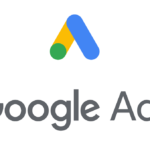
When we think of building a website for our business or even blogs, we think of the most obvious and necessary aspects such as purchasing a domain name, designing a theme, using various tools, doing SEO and executing other marketing strategies. But most of us forget the most important part of it, which is the accessibility of the website. Unless and until the website is accessible, it cannot reach its end users.
But what exactly is web accessibility?
Web accessibility is when people with disabilities, especially cognitive, visual and hearing impairments are given an equal opportunity to access a website with the same convenience as others.
This becomes a significant aspect of building a website because surprisingly, web accessibility is given the least consideration. Therefore, let us try and understand why people should be able to access your website, or why web accessibility should be one of your top priorities as a website owner/builder
1. Moral obligation
As a website owner/developer, you have a moral responsibility to make sure that your website is accessible to screen readers and inclusive to different kinds of people, irrespective of their age, status and disabilities. According to the CDC, 61 million Americans live with some sort of disability. That is a huge number, which suggests that a fair section of users who visit your website are suffering from some kind of disability, and as a service provider, you ought to know their requirements and tend to them. Due to the negligence of most website owners, such people, undoubtedly, find it hard to navigate through the content they’re trying to promote. So, all you have to do as a site owner is to make some tweaks that will make their lives a lot easier.
2. Think of the reach
Keeping aside compassion for a while, if you deeply think about it, you can remarkably increase web engagement if your website is made accessible to people with cognitive disabilities or screen readers. As mentioned above, 1 in 4 adults in the US and 37% of people globally are living with some form of disability. And considering the countless websites that do not offer accessibility, this presents a golden opportunity that you can tap into. In simpler terms, when you make your website accessible to the disabled crowd, you expand your reach to more people, which will help you reach your business goals.
3. Legalities
As a business and website owner, you don’t want to be on the wrong side of the law. There are several countries where web accessibility laws and policies are in effect. This is to eliminate any form of discrimination between cognitively disabled persons and other citizens. So, for instance, China’s Voluntary Web Accessibility Standards, the Americans with Disabilities Act and the ‘European Union Web & Mobile Accessibility Directive’ are a few laws and policies favoring screen readers. Apart from this, there are several laws in the making, which are meant to enforce equality of opportunity for screen readers. So, since the law increasingly demands accessibility, you may want to consider staying on the right side of it.
4. Helps with the SEO
Since the websites have to meet the standards of the WCAG guidelines, you’ll notice that most of these guidelines actually coincide with SEO practices meant for optimal search rankings. In other words, when you meet the WCAG guidelines, you’re improving your SEO practices as well! Let us take some quick examples
-
Good structure of headings for the content
-
Descriptive Alt-text for images
-
Anchor text for links
-
Sitemaps and
-
Audio/video transcripts
Therefore, meeting these guidelines is only going to benefit you in all sorts of ways.
Web Accessibility means that people with such disabilities can perceive, navigate and understand the content and thus, contribute. Web accessibility, therefore, gives you a competitive edge over others in your business. For the purpose of effectively meeting the standards of WCAG and making your website accessible, you can reach out to web accessibility consultants now.
5. Improve your user experience
Web accessibility and meeting various standards is more beneficial for your business than you think. Not only does it help you increase your reach and stay out of legal trouble, but it also improves the overall experience of your website. An accessible website comes with features that make engagement with your website pleasing and satisfactory for all kinds of people. For instance, videos offering captions will help users with hearing disabilities, and making the text of your website legible and readable will help users with visual impairments read and understand the content better.
There are numerous web accessibility services and web accessibility agencies that provide greater insight into how one can manage compliance, audits, and certifications on the same.
Conclusion
There are so many websites that have benefited and profited exponentially having met the standards of the policies for the disabled. By doing so, you tap into a larger market for your business because as mentioned above, making a website accessible gives you a competitive edge over the others, considering the number of people who are living with some sort of disability.





